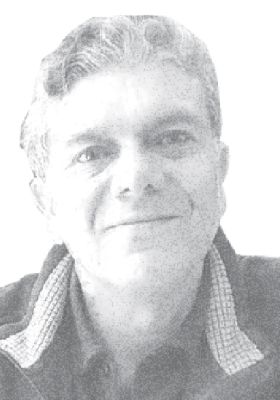In many ways, this week’s Iraqi legislative elections were extraordinary, signalling a slow but determined departure from the ethnosectarian schisms that had fractured the Iraqi society since the 2003 US invasion. Almost
all competing lists sought to bridge the sectarian divide, reflecting a growing sense of pragmatism that came as a result of years of exceptional hardship and tests, the last of which was the bitter and devastating war against Daesh.
Regardless of the outcome of the vote, where less than half of registered voters actually turned out, the real challenge for heads of major lists, including the incumbent Prime Minister Haidar Al Abadi’s Victory List
(Al Nasr), will be to build alliances and coalitions that will allow Shiite, Sunni, Kurds and minorities to share power for the first time since elections were held. There were some surprise results: Iraqi nationalist and Shiite cleric Muqtada Al Sadr’s Revolutionaries for Reform Alliance (Al Sairoon) came out first in Baghdad, which has the highest number of seats. A bitter opponent of US and Iranian hegemony over Iraqi politics, his list combines Islamists and secularists alike. His will be a deciding voice in selecting the next prime minister and Cabinet.
Although Abadi’s list was expected to overcome the competition, by Monday he was trailing in third place. In another surprise, Iran backed Hadi Al Ameri and his Conquest Alliance (Al Fateh) was in second place, claiming votes in most Shiite provinces.
Despite low voter turnout, technical problems affecting automated polling machines, failure by thousands of displaced Iraqis to cast their votes amid accusations of vote rigging in Kurdistan, there is a sense that Iraq is finally emerging from decades of disunity, sectarian friction and foreign interference. But recovery will be slow and not without setbacks. The ability of Iraqis to form a government that will bridge ethnosectarian gaps will go a long way in bringing Iraqis together and limiting foreign intervention in its affairs.
But until that happens, it will take some time for heads of lists to embrace a common platform, three main powers will be calculating their moves. It remains to be seen how the US, which has considerable influence over the
country, will play it next move. It has backed Abadi in the past against Iran’s choice, Nuri Al Maliki, under whose watch, Daesh was able to conquer 40 per cent of the country and who is seen as being responsible for wide-spread corruption.
The supreme Shiite institution in Najaf will also play its part in managing political negotiations that will follow the elections. Abadi remains a favourite and he has attempted to woo disenchanted Sunni voters in Anbar, Nineveh and Salahuddin provinces.
But rising tensions between the US and Iran are likely to cast a heavy shadow over Iraq’s political recovery. The war against Daesh has produced a new and influential political player; the Popular Mobilisation Units (PMU). Its leader, Ameri and his Conquest Alliance, now represent Iranian interests in Iraq.
That leaves Iraqi Kurds, who have splintered and who are now trading accusations amid allegations of vote rigging. Since the botched referendum of last year, the Kurds have bowed down to Baghdad’s dictates. The elections
will decide what share they will have in parliament and accordingly in the next government. The future of oil-rich Kirkuk province remains a challenge.
With Daesh threat now considerably contained, the next Iraqi government will face the gigantic challenge of reconstruction. Mosul, which used to be Iraq’s second largest city, will have to be rebuilt almost completely. Millions of displaced Iraqis, mostly Sunnis, are waiting to return to their homes. But that will not happen until the central government can raise enough funds to kick-start the process of reconstruction. Iraq cannot do it alone and it
needs the help of regional states, as well as the international community to begin work. That task will take years and maybe decades to complete.
Iraq’s stability is of paramount importance to the Gulf States and the region beyond. Maintaining national reconciliation and fighting institutional corruption is a job that is beyond one single government. More
importantly, Iraqis need to regain confidence in the state and its institutions and that will not be easy.
The US-Iran spat must not be used to interfere in Iraqi internal affairs. But that is bound to happen if the two countries are engaged in confrontations rather than negotiations. The latter seems unlikely now. This
is why Iraqi leaders, such as Abadi, Sadr and Ammar Al Hakim, must avoid being sucked into the vortex of regional crisis and polarisations. They must move away from identity politics, as promised during the campaign, towards a more inclusive national base. Their alliance with moderate Sunni powers is the best insurance against foreign meddling.
One bright point accompanying Saturday’s elections was that there were no terrorist attacks against polling stations and voters. For a country that only a year ago was on the point of submission to terror groups, that is a major accomplishment.
Osama Al Sharif is a journalist and political commentator based in Amman
